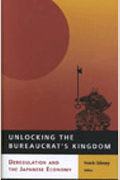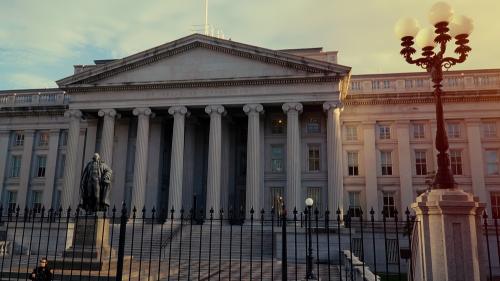Scandals in banking, finance, and housing rocked the world, causing a global financial meltdown and the Great Recession. While the economy and the financial sector eventually recovered, the fallout from the financial crisis kept the papers full of misdeeds and improper actions within finance. A certain numbness must have come over large sections of the public who could hardly muster shock anymore when this latest new scandal was uncovered at Wells Fargo.
Yet yesterday’s hearing before the Senate Banking, Housing and Urban Affairs Committee achieved something that prior scandals had not. As Senator John Tester (D-MT) noted, Wells Fargo’s practices had “done something I’ve never seen in 10 years: You have united this committee — and not in a good way.”
Why is this scandal different and why should we be more concerned about it? Because this improper action gets at the heart of the entire financial system: trust between consumers and banks.
The core of the entire financial system is trust. Customers trust banks with their money. Banks trust that consumers will repay loans. Investors trust broker-dealers that they will provide them advice in their best interest and get the best price, not the brokers’ highest commission. Without trust, the entire financial system collapses. Financial crises occur, in part, because trust is suddenly lost. Fundamentally the private sector has to build and maintain trust, while the government can serve to enhance it. The government works to enforce this trust through a series of explicit government guarantees such as deposit insurance, laws and regulations to require proper action, and enforcement and oversight to ensure punishment and remuneration when laws and contracts are violated.
The actions that Wells Fargo undertook violated this trust on the most basic levels. What Wells, America’s largest commercial bank by domestic assets, did was to open unauthorized bank, credit card, and other accounts for their customers on a massive scale. These accounts, which consumers did not authorize or even know about, then triggered various fees, which were charged to consumers. More than 5,000 Wells Fargo employees were involved in the operation, which was incentivized by offering bonuses and other pressure to Wells employees to create accounts. These activities went on for several years from 2011-2013, when they were first detected. It is unclear how long they continued, and even after yesterday’s hearing, it is unclear exactly when Wells CEO John Stumpf first knew about them, despite his having frequent direct access with the executive in charge of this program Carrie Tolstedt. When asked directly by Senator Sherrod Brown (D-OH) whether Stumpf knew about the activities before they were reported in the L.A. Times in 2013, Stumpf said, “I don’t remember the exact timeframe. I can get back to you.” A low point in a hearing full of low points for the CEO.
It is easier to understand what Wells Fargo did as compared to what was going on during the financial crisis with synthetic collateralized debt obligations, credit default swaps, and the tri-party repo system. That is one reason why members of Congress and the press are likely to continue pounding on this issue. It also raises the logical question: who else was doing this? Every American may be wondering: are there accounts that were opened in my name that I don’t know about? If so, how can I find out? You can start by requesting your free credit report through a provision that Congress required in the Fair and Accurate Credit Transactions Act of 2003, but be prepared for a shock as it is estimated that 1 in every 4 Americans have incorrect information on their credit report (I found out about several other ‘Aaron Klein’s in mine).
This post-financial crisis scandal also raises the question, has anything really changed in banking and finance? One reason why it was important for financial regulation to be enacted into law after the financial crisis was to restore public trust and confidence in our markets. The Dodd-Frank Wall Street Reform and Consumer Protection Act of 2010 was designed to do just that and included new legal authority allowing financial regulators to ‘claw-back’ ill-gotten gains by executives. Yet the executive compensation rules implementing this authority have still not yet been finalized by the regulators, six years after the law was passed and more than five years after they were first proposed. Financial regulators could start by enforcing the law, finalizing those rules ASAP, and acting upon them aggressively. Criminal prosecutors also have a role to play in enforcing their legal authority, which is separate from the job of bank regulators. Enforcement of the full range of law is important as it relates to public trust.
But beyond government action, the industry needs to act to restore trust. The fact that Wells Fargo has fired over 5,000 junior employees — but not a single senior manager — will not sit well with the American public, nor should it. It is simply untenable that Wells Fargo told investors that it has “strong recoupment and claw-back policies” in place, yet they have not publicly announced a single dollar of claw back from the over $100 million that Carrie Tolstedt is poised to receive as part of her retirement (yes she is still a Wells Fargo employee, not fired and poised to retire with full benefits). The financial services industry needs to convince the American public with deeds, not words, that they should be trusted. Trust is at the core of the financial system. To truly move beyond the financial crisis, that trust must be restored.
The Brookings Institution is committed to quality, independence, and impact.
We are supported by a diverse array of funders. In line with our values and policies, each Brookings publication represents the sole views of its author(s).







Commentary
Why the Wells scandal matters so much
September 21, 2016